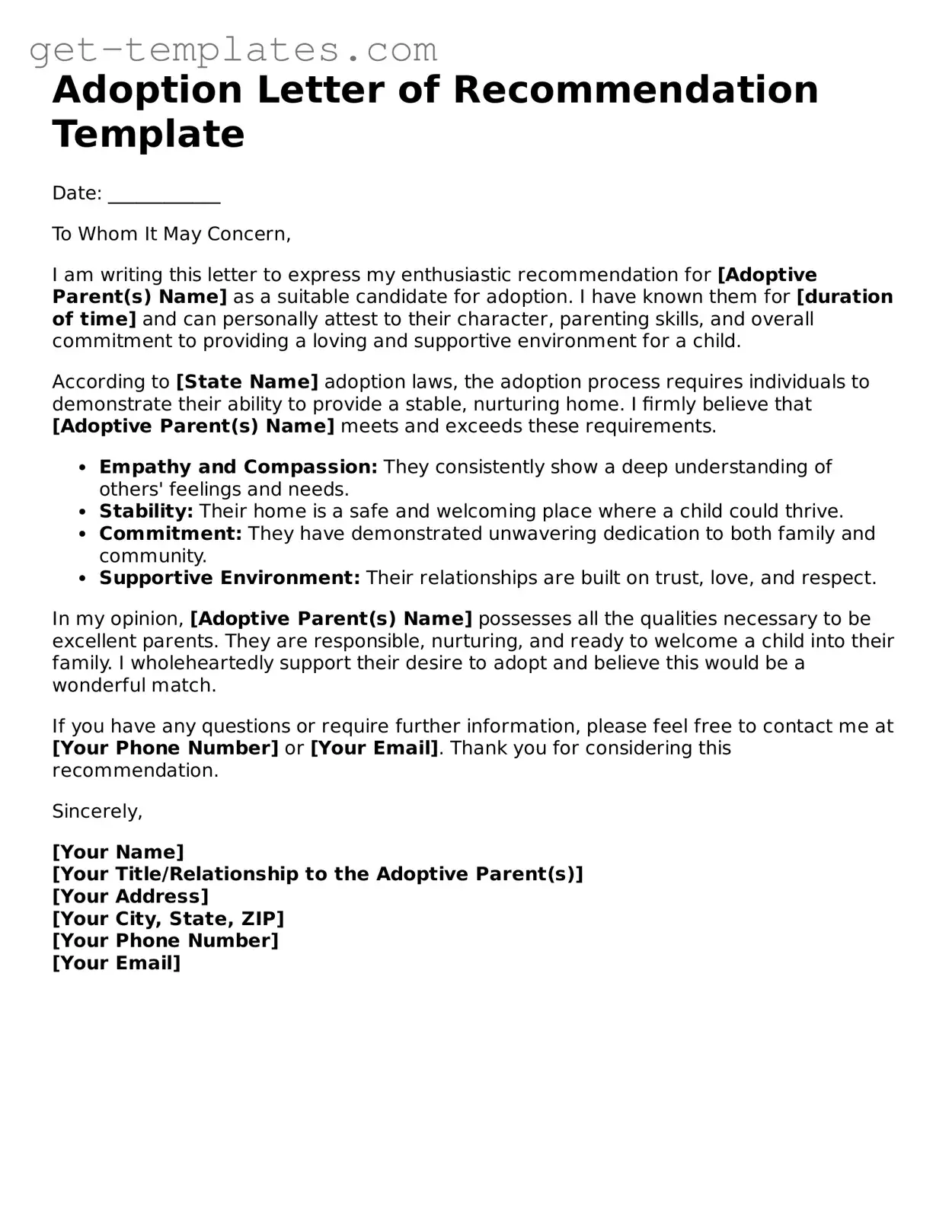Attorney-Approved Adoption Letter of Recommendation Form
The Adoption Letter of Recommendation form is a crucial document that supports a prospective adoptive parent's application by providing insight into their character and suitability. Typically written by friends, family, or professionals, these letters help adoption agencies and courts assess the applicant's readiness for parenthood. A well-crafted recommendation can significantly impact the adoption process.
Get Document Online

Attorney-Approved Adoption Letter of Recommendation Form
Get Document Online
You’re halfway through — finish the form
Finish Adoption Letter of Recommendation online — edit, save, download made easy.
Get Document Online
or
⇓ PDF Form
